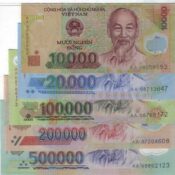Role of Women in Vietnamese family

Role of Women in Vietnamese family
The history of the Vietnamese nation has affirmed the role and great contributions of Vietnamese women in all fields during national construction and development.

The role of women in Vietnamese families has undergone many major changes throughout history, reflecting broader social and political changes in the country. According to archaeological documents, Vietnam had a fairly long period of Matriarchy in primitive society with women’s important and decisive role in the family and society.
Women in Van Lang – Au Lac
At the dawn of history and in the prosperous period of primitive society, every nation experienced a period of matriarchy, in which women were the heads of families and clans; women played a great role in economic activities, social life as well as in spiritual and cultural life.

In Vietnam, everyone remembers the story of Mother Au Co and Father Lac Long Quan as the founders of the nation’s history. Mother gave birth to a hundred eggs in the same sac, hatched into a hundred boys. Mother and Father divided their children equally between the mountains and the sea, becoming the people of the mountains and the plains today. Mother Au Co’s great contributions have been passed down for thousands of generations in Phu Tho land, proving that she was the one who bore the burden of giving birth and was also the founder of the nation’s culture.

In Vietnam during the Van Lang – Au Lac period, women were the ones who mainly took care of gathering, participated in hunting, and then did primitive farming, animal husbandry, handicrafts, and housework. In general, during this period, Vietnamese women fully participated in all stages of labor in society and family.
Women under Chinese rule
From the 3rd century BC, under Chinese domination, Vietnamese society shifted to a patriarchal system due to the influence of Chinese culture, women were limited to the family and had little opportunity to study and participate in social life. However, thanks to the origin that valued the role of women, in reality, Vietnamese women during this period still controlled most of the family work and participated in social activities, mainly participating in fighting the enemy and social struggles.

Hai Ba Trung’s Uprising (40 BC) was a typical uprising during the Chinese domination, demonstrating the patriotism and struggle for national independence of the Vietnamese people. The uprising was led by the two sisters Trung Trac and Trung Nhi, had a strong impact on the history of the nation, and was a shining example for future generations to follow and be grateful for.
Women in feudal dynasties
During the feudal period of Vietnam, Confucianism was introduced into Vietnam and gradually changed the relationship between men and women in a more patriarchal direction. Confucianism continued to strengthen the family order according to the patriarchal system, the role of women was underestimated and suffered many disadvantages. Women were excluded from the vast life of society and forced into the narrow framework of family life.

During this period, polygamy existed, women were looked down upon, even abandoned if they could not give birth to a son. Women in the feudal period were deprived of the right to inherit property, all property belonged to the son, from which women fell into a state of dependence, relying on their sons to live. Not only that, Confucian concepts also bound the happiness of many women, making them unable to control their own lives.

However, the role of Vietnamese women under the feudal regime in social activities cannot be denied. They still actively participated in the cause of national salvation in many different ways: working as insiders for the army, bringing rice from their houses as food for soldiers, or telling the leaders of the Tran Dynasty about the tides of their homeland’s rivers, helping the Tran Dynasty establish the famous Bach Dang River victory, and so on.
Women from 1945 – now
In modern times, during nearly a century of colonial rule, the traditional role of Vietnamese women was still maintained. This is the most prominent feature of this time: while women still performed the function of productive labor and housework, women participated more strongly in patriotic movements and national salvation activities.
The August Revolution of 1945 successfully destroyed the feudal stronghold, marking a historical milestone in the issue of gender equality established and institutionalized by the Constitution and Law. All power in the country belongs to the Vietnamese people. Women in the Democratic Republic of Vietnam have equal rights with men in all aspects of political, economic, cultural, social, and family life.

Up to now, women have been equal to men in terms of rights and obligations both in the family and in society. Female workers in many industries have been recognized as having good quality and skills. Women are increasingly participating in leadership in Party and State agencies. It can be said that these legal bases have truly opened up new opportunities for Vietnamese women on the path of development.

Nowadays, in the period of strong integration and globalization, Vietnamese women are increasingly promoting their role in the country’s development. Now, women are not only constrained by their obligations to their families, but they are also free to do what they want for their happiness.
Don’t forget to contact Trang An Ecorest Resort & Spa – (+84 915 702 099) or visit us at www.tranganecorestresort.com if you need any support!
Trang An Ecorest Resort & Spa
Image source: Internet








